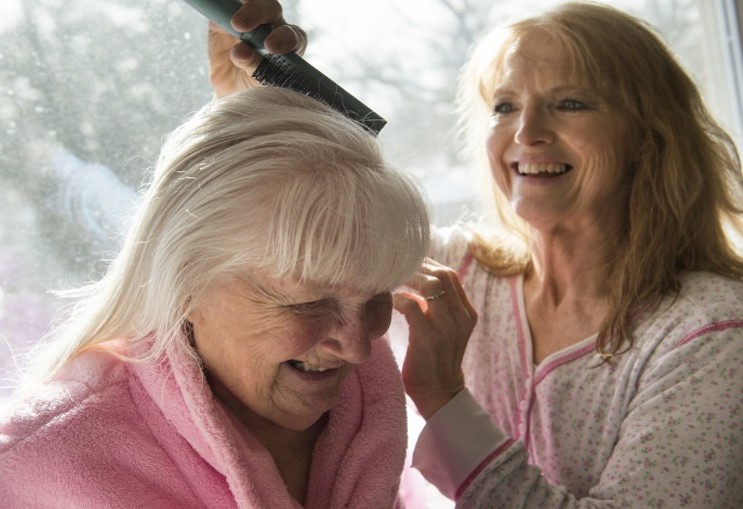
International Self-Care: Importance of Self-Care for Senior Citizens
As the global population continues to age, the focus on self-care for senior citizens has never been more critical. According to the World Health Organization, the number of people aged 60 years and older is expected to double by 2050, reaching 2.1 billion. This demographic shift necessitates a closer look at how self-care can improve the quality of life for seniors, enhancing their physical, mental, and emotional well-being.
#Understanding Self-Care
Self-care refers to the actions individuals take to maintain their health and well-being. For senior citizens, self-care encompasses a range of activities, from managing chronic conditions and maintaining a balanced diet to engaging in social interactions and mental exercises. The importance of self-care for seniors cannot be overstated, as it directly impacts their ability to live independently and enjoy a higher quality of life.
#Physical Health and Self-Care
Physical health is a cornerstone of overall well-being, especially for seniors. Engaging in regular physical activity can help prevent a range of health issues, including cardiovascular disease, diabetes, and osteoporosis. Exercise routines tailored to the elderly, such as walking, swimming, and yoga, can improve mobility, balance, and strength, reducing the risk of falls and injuries. Additionally, maintaining a nutritious diet rich in vitamins, minerals, and proteins is essential for sustaining energy levels, supporting immune function, and promoting recovery from illness.
Medication management is another critical aspect of self-care for seniors. Many older adults take multiple medications, which can lead to complications if not managed properly. Utilizing pill organizers, setting reminders, and regularly consulting with healthcare providers can help seniors adhere to their medication schedules, preventing adverse effects and ensuring the effectiveness of their treatments.
#Mental and Emotional Well-Being
Mental health is equally important for seniors as physical health. Engaging in mental exercises, such as puzzles, reading, and learning new skills, can help keep the brain active and reduce the risk of cognitive decline. Social interaction plays a vital role in mental well-being, as loneliness and isolation can lead to depression and anxiety. Seniors should be encouraged to participate in community activities, join clubs, or engage in online forums to maintain social connections.
Emotional self-care involves managing stress and fostering a positive outlook on life. Practices such as mindfulness, meditation, and deep-breathing exercises can help seniors cope with stress and maintain emotional balance. Additionally, maintaining hobbies and interests that bring joy and satisfaction can enhance emotional well-being and provide a sense of purpose.
#The Role of Technology in Self-Care
Advancements in technology have provided new avenues for self-care among seniors. Telehealth services have made it easier for older adults to access healthcare without leaving their homes, reducing the burden of travel and minimizing exposure to illnesses. Wearable devices, such as fitness trackers and smartwatches, can monitor vital signs, track physical activity, and provide reminders for medication, contributing to better health management.
Mobile applications designed specifically for seniors can offer guided exercise routines, mental games, and social networking opportunities, all of which promote self-care. However, it is crucial to ensure that seniors receive proper guidance and support in using these technologies to maximize their benefits.
#Family and Community Support
Self-care for seniors is not solely the responsibility of the individuals themselves; it also requires support from family members and the community. Families can play a pivotal role by encouraging healthy habits, assisting with daily tasks, and providing emotional support. Simple actions, such as accompanying seniors to medical appointments, helping them navigate technology, and engaging in regular conversations, can significantly enhance their self-care efforts.
Communities can contribute by creating age-friendly environments that promote active living and social engagement. Establishing senior centers, organizing community events, and offering transportation services can help seniors stay connected and involved. Public health initiatives aimed at educating seniors about the importance of self-care and providing resources for health management are also vital.
#Policy Implications
Governments and policymakers have a crucial role in promoting self-care among seniors. Implementing policies that ensure access to healthcare, affordable medication, and social services can create a supportive framework for self-care. Additionally, investing in public health campaigns that emphasize the importance of self-care and provide practical advice can empower seniors to take charge of their health.
In conclusion, self-care is an essential component of a healthy and fulfilling life for senior citizens. By focusing on physical health, mental well-being, technological support, family and community involvement, and supportive policies, we can help seniors lead independent and vibrant lives. As the global population continues to age, prioritizing self-care for the elderly will become increasingly important, ensuring that they enjoy their golden years with dignity and vitality.

